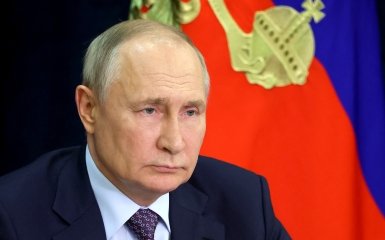Kremlin dictator Vladimir Putin feels almost no pressure from Russians due to the ongoing criminal war against Ukraine and the deteriorating economic situation.
How Russians are getting used to life in a constant war
The journalists of the publication note that the expectations of Western analysts and officials that the pressure of international sanctions on Russia and isolation would turn Russians against Putin are not being met.
The vast majority of Russians are not protesting against the Kremlin's criminal policies, but rather are rallying around nationalist ideas and a course of war against Ukraine and Western powers.
The Kremlin is using the biggest European conflict since World War II to reorganise Russia, combining fierce nationalism with a powerful mix of nostalgia for Soviet times and imperial traditions, and increasingly cracking down on dissent. As a result, Putin does not feel much pressure from within the country to end the fighting, despite the huge military losses, the article emphasises.
Sociologist Anna Kuleshova notes that this creates a sharp contrast between the first months after the large-scale invasion of Ukraine by the criminal army of Russia in late winter and spring 2022.
At that time, most Russians were shocked and angry at the Kremlin's war against Ukraine.
When there is no decent way out of the situation, no way to leave, and there is a need to earn money and raise children, it is easier to accept the new reality than to endlessly resist it, Kuleshova explains.
The authors of the material note that the reality of the war unleashed by the Kremlin against Ukraine is currently affecting all spheres of life in Russia.
In schools, children are forced to send gifts and letters to soldiers of the Russian occupation army in Ukraine and special lessons are held to indoctrinate them with the new Kremlin ideology.
Television broadcasts and Russian media resources mostly publish materials on military topics.
In particular, the Kremlin propaganda portrays the Russian occupiers in Ukraine as the successors of the generation that defeated the Nazi invasion in the ‘Great Patriotic War’.
Army recruitment campaigns offer lucrative bonuses and salaries to those who ‘man up’ and join the ranks of contract soldiers.
How Russia managed to avoid economic collapse after the start of the war against Ukraine
The authors of the article note that insufficient control over compliance with Western sanctions has led to the fact that the economy of the aggressor country has not felt the necessary pressure, and therefore ordinary Russians have not experienced significant discomfort in the context of the war against Ukraine unleashed by Russia.
At the same time, in the process of Russia's adaptation to the war, a large number of Russians managed to find their own financial benefits.
For example, a growing labour shortage, exacerbated by the military's demand for recruits, is putting upward pressure on wages as businesses raise them to retain staff or fill vacancies.
Of course, the Kremlin's harshest crackdown in decades on even mild criticism has largely silenced Russians who oppose the war. The state conducts high-profile detentions of human rights activists, journalists and playwrights, and imprisons ordinary people for posts on social media under the ‘fake news’ law, which makes criticism of the war a crime, the article emphasises.
It is noted that paranoia amid the Kremlin's political persecution extends even to the entourage of Kremlin dictator Vladimir Putin.
At the same time, according to experts, support for negotiations with Ukraine finds support among ordinary Russians only in the event of further defeats of the Russian occupation army in Ukraine.
At the same time, even if they support the negotiations, many insist on preserving the territories that Russian troops currently occupy in Ukraine and which Putin has declared to be part of Russia ‘forever’.



